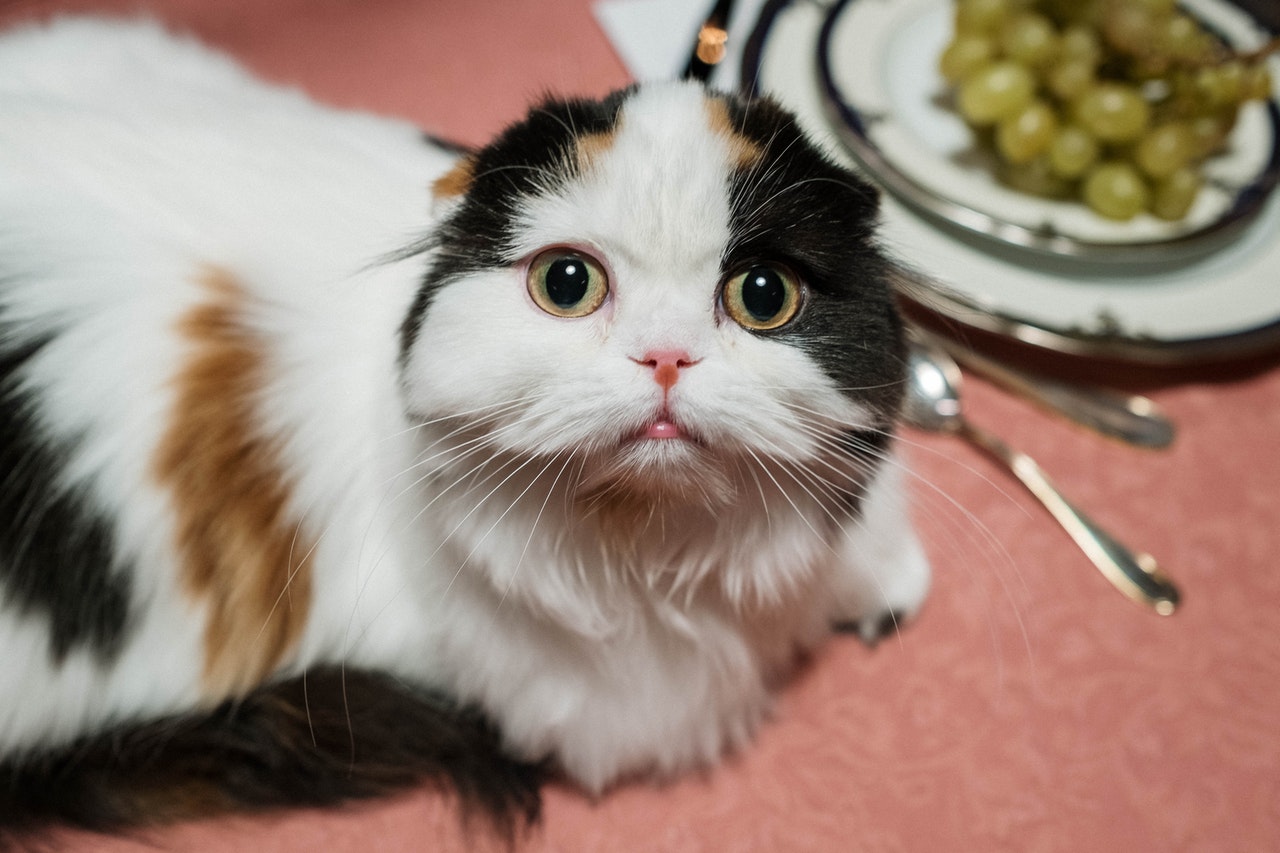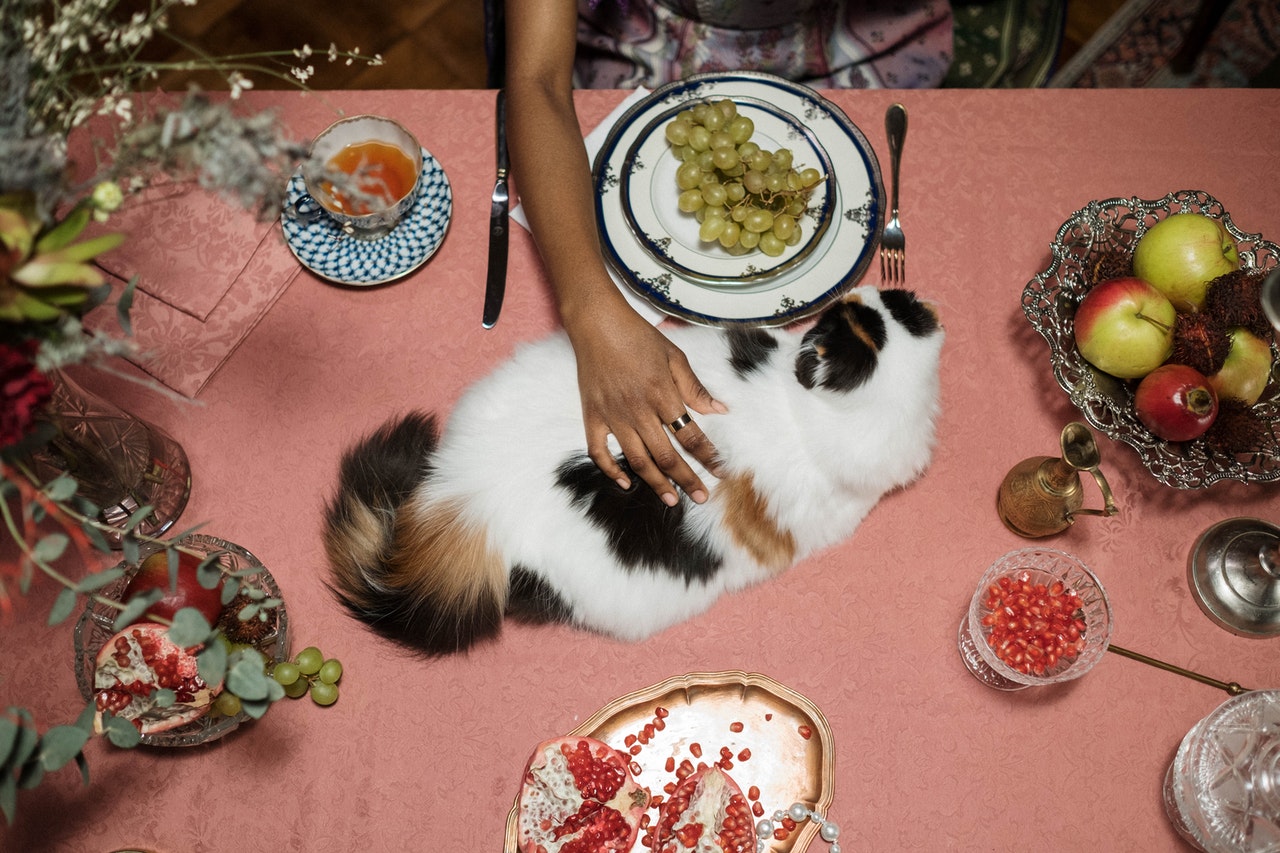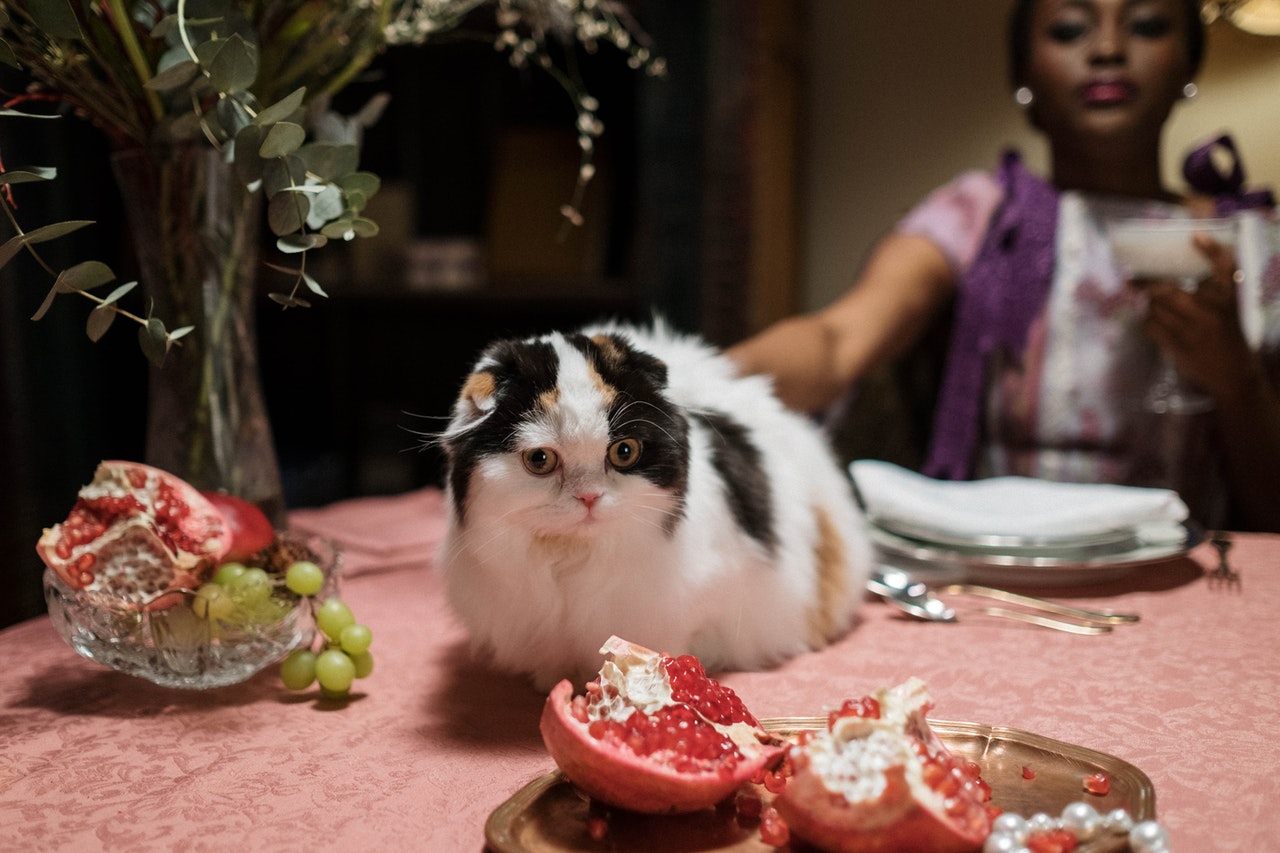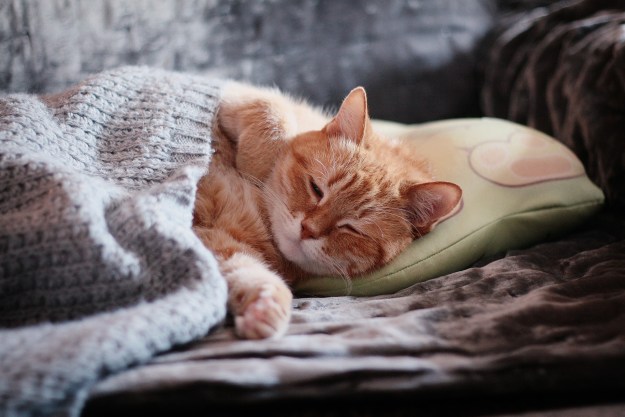While some fruits (like grapes) are widely known as potentially deadly to cats, most people are left in the dark when it comes to other tasty human snacks. Bananas are loaded with vitamins and minerals like vitamin B6, vitamin C, and potassium, which can help lower blood pressure and improve heart health. However, those are the health benefits bananas can give humans, not cats. Have you ever wondered, “Can cats have bananas?,” or have you Googled, “Are bananas poisonous to cats?” We’ll break down everything you need to know about whether you can share a bite of your favorite snack with your cat.

Why cats shouldn’t eat human food … often
Some of our favorite foods can make cats seriously ill, and others are toxic. Grapes, raisins, chocolate, alcohol, and any drink containing caffeine are all extremely dangerous to your fur baby. Despite the clichéd scene from a multitude of films, you should never give your cat a saucer of milk or cream as a treat; cats are actually lactose intolerant. Giving your cat dairy products can cause digestive issues, including vomiting and diarrhea. Cats are obligate carnivores, meaning they require meat-based diets for optimal health. Foods rich in carbs, like bread, should not be given to your feline fur baby because cats have a difficult time digesting carbohydrates and derive little nutrition from them. Contact your local emergency vet immediately if you suspect that your cat has eaten something she shouldn’t.
Can cats eat bananas?
It may surprise you to learn that bananas are on the list of human foods you can safely give your cat. However, we don’t recommend giving your cat more than the occasional slice of banana. Because bananas are loaded with sugar, they may cause weight problems if eaten in large doses. Over time, overconsumption of sweet treats like bananas may cause your cat to develop diabetes. If your cat already has a weight problem, restrict her intake to a tiny bite every now and then. The majority of your cat’s calories should come from animal products that provide adequate nutrients, so try not to turn bananas into a daily after-dinner treat.

How to safely give your cat a banana
When it comes to giving your cat human food, you can’t just cut off a mouthful and set it down for your cat. Here are a few steps to get you started.
1. Talk to your vet first
Your vet knows your cat’s health inside and out. You should always consult your vet before starting your cat on a new diet, adding supplements, or sharing some of your food with her. Not only can your vet advise you on whether your cat can safely eat bananas, but he also can recommend how much to give her depending on her weight and overall health.
2. Prepare the banana
Once your vet gives the A-OK to serve your cat the occasional slice of banana, it’s time to prepare. Peel the banana completely, taking care to remove the fibrous stringy bits often left behind (they can be a choking hazard), and cut it into small slices. Cut one of those slices into small bites, roughly the size of your cat’s favorite treat, and set them out on a plate. You can also try mashing up a banana slice and feeding it to your cat as a yummy paste.
3. Make sure your cat tolerates bananas
No matter how much your cat loves her treats, please refrain from giving her too much banana at once. Keep an eye on your cat over the next few days to see how she tolerates bananas. Some cats may develop flatulence or other digestive issues. If that’s the case with your cat, you’ll want to find a different snack you can give her.
4. Try pumpkin instead
If your cat doesn’t digest bananas well, you still have options if you want to give her the occasional sweet treat. Many veterinarians recommend giving cats pumpkin to alleviate constipation, as it helps the bowels move more regularly. Pumpkin is also an excellent source of dietary fiber, which can help cats feel fuller longer. If your cat is a little on the hefty side, try giving her pumpkin puree instead of fattening cat treats.

As a general rule, cats shouldn’t eat human food. However, there are a few exceptions. You can safely give your kitty a tiny slice of banana every now and then as long as she doesn’t suffer any digestive issues. And if you still want to give her a special snack, you can’t go wrong with pumpkin.
Editors' Recommendations
- Wondering why cats chirp? Fascinating reasons why your cat chirps at birds (and you)
- There’s a totally normal reason cats throw up after eating grass – here’s why
- When can kittens leave their mom? Don’t separate them too early
- This video of a confused kitty discovering a cat water fountain is adorable
- Why doesn’t my cat meow? Here are 5 reasons why your feline friend is silent




